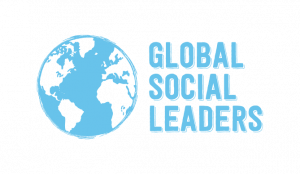We are delighted to share a blog written by student Paloma, from The Edron Academy, who is part of a team delivering a Global Goals project for the 2021-22 GSL Global Goals Competition.
Their project is among over 957 social action projects currently running as part of the GSL movement and we are excited to be supporting them to design and lead positive social change in their community!
A life-changing experience serving as a window into the lives of those who lack a voice in the Mexican criminal system
Project Summary
Mexico is a country extremely rich in nature and culture. Still, behind the alluring landscapes and tourism destinations, Mexico is also a country of contrasts, with a brutal justice system still lacking the efficacy and independence demanded under international standards. Today, around 700 children are trapped within them from their birth, accompanying their incarcerated mothers until, according to Mexican law, they have to leave the prison at three years old. We wished that the number 700 alone could encapsulate the severity and pain in each story. Still, it does not because, for years, there has been little to non-laws and efforts within the penitentiary system that recognizes and works towards taking care of the children.
Once they are out of prison and away from their mother’s arms if there is no one able to take care of them, they are left in the hands of DIF (Sistema para el Desarrollo Integral de la Familia). This Mexican public institution is not fully competent for their reintegration. Due to an interrupted development, lack of opportunities, societies stigmatisation, bias and indifference, lack of real accompaniment, and untreated traumas, most children discover that for them, the outside world can be as bitter as prison itself.
For a year and a half, Authors of our Future has worked with experts to establish a program in early child development. This program began to be imparted on April 4th of, 2022, within the ‘Centro de Justicia Penal Federal’ (Nezahualcóyotl, Estado de México), under the margin of the law and the sanitary measures in the jail).
The root of having had to postpone launching our presential courses multiple times is the severe and irregular presence of the Covid-19 virus in our country and the intermittent communication that the authorities have allowed us to have with them.
Returning to our child-development program, we will offer weekly, one-hour workshops (some for toddlers and others for newborns), focusing on each of these five areas: the development of the fine motor, the gross motor, language, emotional development, and sensory, cognitive one. The specific regions give place to what we wanted to achieve since the start: the development of these children’s neurological and physical health and the contribution to forming an integral and permanent bond with their mothers, causing both the mother and the child’s well-being to flourish.
Although these stimuli and aspects may be taken for granted and their development may be guaranteed and inevitable in the world as we know it, this same world is out of reach for these children who remain behind bars for the first years of their life. They should feel tangible support from a society that has yet to prove that it has not forgotten about their existence. It will only be when we take into account the invisible and forgotten children that a prominent future for our country will be built. As Frederick Douglass expressed: “It is easier to build strong children than to repair broken men.”
The Journey
At the beginning of our project, we contacted an organization called Reinserta, which works within Mexican prisons, as a way for us to learn more about the viability of our project and what the following steps to make our plan a reality should be.
Implementing an early development program meant a lot of precision and knowledge we needed to possess (due to the delicacy of the development of younger children and newborns) to have a significant impact. Accordingly, we took (up until now) more than 100 hours of courses by experts in early development. Through these classes, we learned what toddlers need in the early stages of their life and how to enhance healthy growth through interactive activities and mechanisms.
Months after a webinar given to our school community, months of searching, and several meetings with lawyers, we contacted the penitentiary system. Then, we were able to pitch our project and plan to the most populated Mexican State Director of Social Reintegration. That same day, in April of 2021, we received permission to begin our program.
However, we again struggled because the authorities we had previously received authorization from cut off all communication for the following several months. As a result, we had to postpone our visit to the prison of Santiguito, when contact was re-established after great insistence and when the global pandemic became less acute.
However, we did not stop working. In preparation for these lessons, we began creating a lesson plan and making the materials for the workshops. We attended virtual and face-to-face classes with one of the experts we had been working with to make sure we had a solid plan to be prepared to give the lessons ourselves.
Additionally, on October 4th, 2021, our team launched a campaign in our school community to collect feminine sanitary pads for women in the Mexican prison of Santiaguito and neighboring prisons in Estado de México. Access to tampons and pads for those incarcerated is a right, yet unfortunately, not a privilege; if they don’t receive sanitary products from family on occasional visits, they are deprived of this sanitation. Providing a basic need such as this one transforms these women’s lives and, consequently, their children’s. The goal was to collect 1,000 pads, but multiple videos, community effort, and nearly two months later, we received the incredible and abundant donation of 14,365 sanitary pads personally delivered to the Estado de México penitentiary system on December 6th, 2021.
Now, in April 2022, we have finally begun to teach our program through classes to the mothers and children inside prison.
The Next Chapter
During our program sessions, in the beginning, we receive verbal feedback from the mothers regarding the changes they have seen since the last session, and at the end of each session, we communicate how we felt during that session. At the root of this feedback, we are in a constant state of implementing changes to our program, focusing on how to improve it per what the mothers and their children need and desire so they can fully extract the benefits from the program and feel comfortable.
Our next steps encompass this permanence in the constant process of improvement, but we would be immensely grateful if, over time, we could achieve the following:
- Grow our social platform.
- Be able to implement a program of physiological help to the incarcerated mothers because only by taking care of themselves they can take care of their children and fully live in the realization that the formation of a capable adult partly resides in their hands.
- It would be a step further if we could offer our sessions to other prisons or expand in the same prison with activities like creating green areas around the jail for the older kids in the system (or the ones who live outside but visit their imprisoned father or mother), getting them involved in helping the environment. We are even open to teach English and other subjects to incarcerated adult women and men.
- Another of our desires is to transform some of the areas in prisons into more child-friendly spaces because we are conscious of the harmful impact of being surrounded by melancholic colors during a period where creativity should be expanded. In transforming these spaces, we also hope to change the detrimental experiences that fall upon children that don’t live there but come and visit one of their parents in prisons that are again not equipped for them and, as a result, suffer from emotional instability and deep distress.
We are open-minded and very optimistic about growing Authors of our Future: we are confident that there is only moving forward from here. Any project that focuses on creating better and stronger communities can slowly begin shaping a world where opportunities are not taken away and human beings -no matter who they are- are not forgotten.








